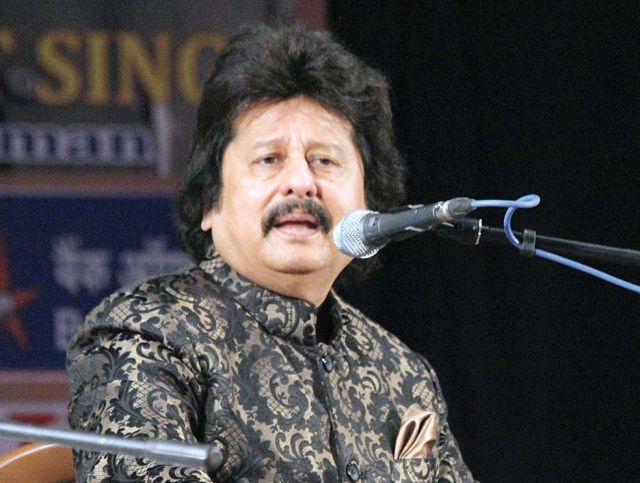Mumbai, Feb 26 (IANS) Acclaimed playback singer and ghazal maestro Pankaj Udhas (72) passed away here after a prolonged illness, a close associate said on Monday.
Udhas was suffering from cancer, and was undergoing treatment at a private hospital for some time now.
The Gujarat-born singer was awarded the Padma Shri in 2006, and is known for rendering many hit songs in Bollywood in Hindi and other languages.
Born in Gujarat’s Jetpur (Rajkot) in May 1951 in a landed family as the youngest of three brothers, Pankaj Udhas was no stranger to music.
Not only had his eldest brother Manhar Udhas become a moderately successful Hindi film playback singer, the second, Nirmal Udhas, was also a well-known ghazal singer, and in fact, was the first of them to start singing in the family. In fact, their father Keshubhai Udhas, a government servant, had once met renowned veena player Abdul Karim Khan, who taught him to play the dilruba.
Seeing his father play the dilruba/esraj – which incidentally was the instrument on which famed Hindi music composer Roshan (the grandfather of Hrithik) had prowess – kindled the interest of Pankaj Udhas in music and it grew so ingrained in all the siblings that the father enrolled them at the Sangeet Academy in Rajkot, in addition to their usual studies.
Pankaj Udhas initially wanted to play the tabla, but then plumped for learning Hindustani classical vocal from Ustaad Ghulam Qadir Khan, and then moved to Mumbai to train under Gwalior Gharana’s Navrang Nagpurkar. Subsequently, he did his B.Sc from the Wilson College in Mumbai.
Like many others, he had his sights set on Bollywood, but confessed later to having a “love-hate relationship” with the industry. He sang the first song for the film “Kamna” (1971), composed by Usha Khanna and written by Naqsh Lyallpur. While the film flopped, the song became very popular.
Pankaj Udhas, in an interview some years back, recalled that there was a lot of competition in Bollywood with Kishore Kumar and Mohammad Rafi still at their prime and as a newcomer, it would not be easy for him to make headway, and as he had already been singing ghazals, he decided to shift his focus entirely to them, especially learning Urdu for the purpose.
However, this realm of music was no easier to stand out, with several stalwarts already ensconced, and it took several years for him to make his mark. His first album “Aahat” (1980) brought him to notice, as did “Mukarrar” and “Nayaab” and as his style of singing matured, his popularity began to rise.
While he had been doing concerts and had become famous among the cognoscenti, “Naam” made him a household figure.
While continuing with ghazals, he also kept his tryst with popular music, of the Bollywood variety, with some famous outings, including the softly sensuous duet (with Anuradha Paudwal) “Aaj phir tumpe pyaar aaya hai” (“Dayavan”, 1988), “Mohabbat inayat karam dekhte hain” (“Bahaar Aane Tak”, 1990), “Jiye to jiye kaise” (“Saajan”, 1991), and “Na kajre ki dhaar”, (“Mohra”, 1994), among many others.
He had over 60 albums – including the first-ever released on a CD in India – and hundreds of compilation albums to his credit and was still active in concerts until the last moment.


